#Natalie Haynes
Text

Natalie Haynes, from 'Stone Blind'
16K notes
·
View notes
Text











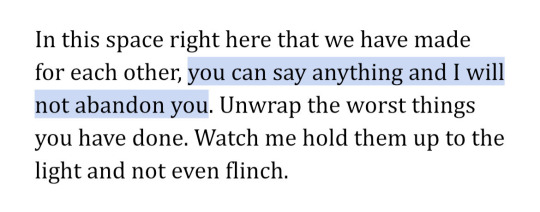

So, I’ve just read the new chapter of this fic that I love and I’ve been bawling my eyes out. The non-linear process of healing and learning how to accept love even if you don’t feel deserving of it hits so close to home.
7th poem is from @halfof-mysoul !
#web weaving#poetry#anne carson#Sade Andria Zabala#Trista Mateer#Natalie Haynes#on healing#on love#on forgiveness#on friendship
5K notes
·
View notes
Text
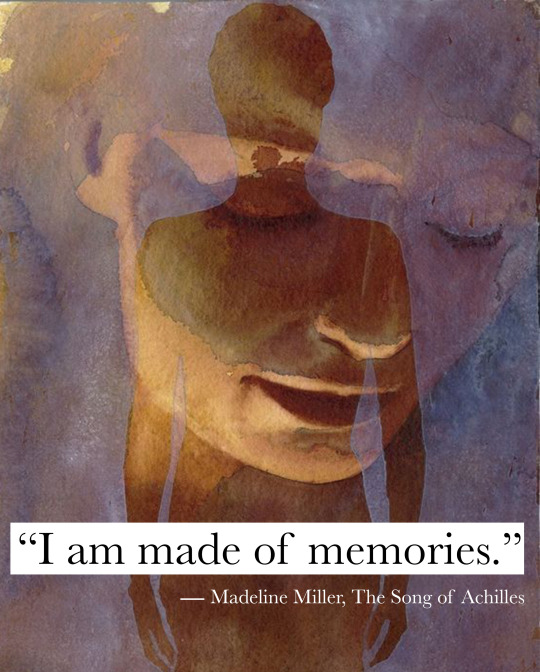
“I am made of memories.”
― Madeline Miller, The Song of Achilles
Painting: "A" by Graham Dean
#classical literature#classics#quotes#albert camus#franz kafka#poetry#sylvia plath#classical quotes#literature#booklr#madeline miller#the song of achilles#circe#natalie haynes#a thousand ships#greek tumblr#greek gods#greek aesthetic#booklover#bookblr#books & libraries#book quotes#books#reading#quote#words#quotations#lit#literary quotes#light academia
85 notes
·
View notes
Text
why do i keep reading/watching/listening to things i already know end sad
#tsoa#patrochilles#the iliad#a thousand ships#natalie haynes#hamilton#hadestown#orphydice#alexander hamilton#tick tick boom#jonathan larson#jocasta#oedipus rex#circe#ariadne#atyd#marauders#madeline miller#lin manuel miranda#wolfstar#jily#jegulus#dorlene#supernatural#destiel#help me i'm sad#i'm having the dreaded ~feelings~
218 notes
·
View notes
Quote
He is learning that in any war, the victors may be destroyed as completely as the vanquished. They still have their lives, but they have given up everything else in order to keep them. They sacrifice what they do not realise they have until they have lost it. And so the man who can win the war can only rarely survive the peace.
Natalie Haynes, A Thousand Ships
428 notes
·
View notes
Text
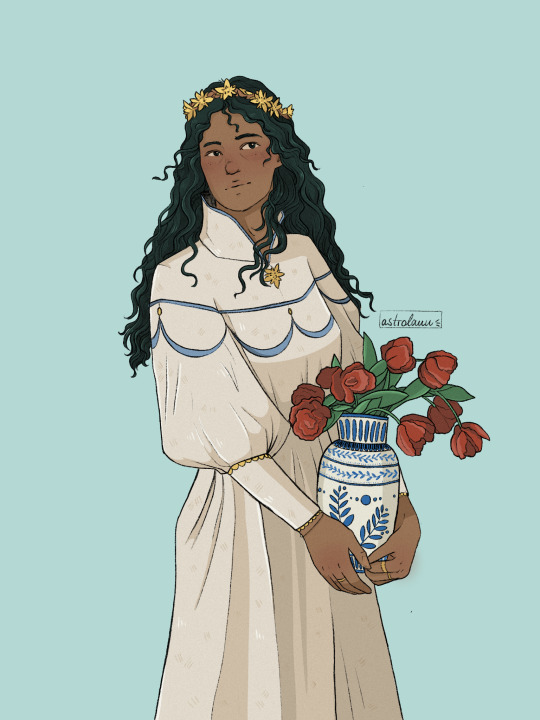
jocasta 🏺
#my trash#digital art#fanart#the children of jocasta#natalie haynes#absolutely LOVED this book#greek mythology
18 notes
·
View notes
Text
Stone Blind by Natalie Haynes is such a missed opportunity that it is disappointing
I picked Stone Blind in the bookstore as a chill read, but I was expecting to be swept away like how Circe by Madeline Miller did. Stone Blind, according to the synopsis, is about Medusa and her story; it is a retelling, a reimagining. A "fresh" take. Well, for starters, it is not.
It is not difficult to please any reader like me. I never had a book completely disappoint me in all the years I've read. I'm 24 now, and I started reading books when I was like 10. All I want is for a book to entertain me enough to give my mind a leisurely ride while keeping it relaxed, to give me something new to think about and wonder for awhile, or to completely mind-blow me if it is really that good.
This book did nothing of any sort. There are a LOT of lapses in the story because it tried to do a lot of things at once, but it failed to neatly and cleanly pack it all up in the end. It seems that this book did not understand the Ancient Greek culture at all. Even the Greek gods did not seem to have any solid personality in this book. The characters all felt so shallow. Stone Blind is simply literally retelling what anyone with basic knowledge of the Greek mythology already knows, and put some dialogues there to fill in some blank spots.
Spoilers beyond this line.
Now, before we continue, let me tell you that I am not attempting to make an unbiased review of the book. I am writing this as someone who has immersed herself in Greek mythology as a kid, as someone who wanted a pleasant read while having her finals week in the university, as someone who simply wanted something new to think about, and as a woman who enjoys a good feminist retelling of a story of a woman in fiction who was demonized through out history.
Stone Blind promised a "fresh take" of Medusa, "the original monstered woman." As said, there was nothing fresh in the book's take. Nothing revitalized. Nothing reconstructed. The dialogues were mostly bland; the characters, barely there. It did not even feel like Medusa was the main character. It was basically a story of Athene at first, then Perseus. Many parts of the story were unnecessary to the point that you would forget something else happened because they were barely relevant halfway in the story and/ or in the end.
One good point I have for Stone Blind is that when someone is raped, the author really uses the word "rape". At first, I thought maybe this is the lack of creativity and/ or better words, but then I realized that she wants to say it as it is so that there would be no other interpretation, no misunderstanding, and no more debate as to what really happened. That is the only good point I have for this book.
But my main complaints? Let us enumerate them:
First, everyone—Panopeia (whoever that is in the story; the chapter was named Panopeia but it was not in the list of characters even when the olive grove and a random crow made it there), Athene, Hermes, and Gorgoneion (apparently Medusa's head but you would not know until Medusa gets beheaded and says it herself)—or shall I say, the author herself, kept forcing the readers to hate Perseus. Gorgoneion had chapters dedicated to shitting on Perseus: "You're probably feeling sorry for him now, aren't you? Poor little Perseus, the reluctant hero. Defender of his mother's honor. Boastful little fool..." Knowing that Gorgneion is Medusa's head might let us know that she hates Perseus because he killed Medusa, that is true. But the thing is, it is not only Medusa who keeps saying that Perseus is arrogant, whiney, incompetent, foolish, annoying, and more. Even Athene, as a narrator and a character, and Hermes said it. Basically anyone who has interacted with Perseus and narrated the story said it. So it must be true, right? But is that how you write a story? Sure, they all keep saying that Perseus is all that and does not deserve to be called a hero, but they fail to show the audience how! It keeps being said but it is not shown. The author wants us to hate Perseus by saying it but does not show us why.
This is where it feels like the book fails to understand Ancient Greek culture. The point about Perseus being an annoying and arrogant little prick circles around the fact that he wants to set out on a quest to get Medusa's head but he does not know what a gorgon is, what to do, where to go, and all that shit. He also "complains a lot" and when he got Medusa's head, he "liked killing people" and became "arrogant". First, honor and pride are the center of Ancient Greek stories, characters, and heroes. This is why Greek gods and goddesses intervene in wars and quests. This is basic in any Greek mythology thing! And even without these values, of course Perseus would not want his mother to be taken by any man, even by a king! Why would we fault Perseus with that? Gorgoneion kept saying in one chapter that had Perseus not intervened, the king would have grown tired of Danae (Perseus' mother) and would have cast her aside because he was not interested in her anyway; he just wanted whatever his brother, Dictys, had (Danae and Perseus was taken in by Dictys when they escaped Danae's kingdom long ago). But how would Perseus know that? All Perseus knew, as a 16-year old boy, was that their peaceful life was disturbed by a king and now the king wants his mother. What child would not want to do anything and everything to intervene, Ancient Greek mythology character or not?
Next, Perseus was sixteen! A child! An Ancient Greek child, at that. Of course, he would not know what a gorgon was, where Nereids lived, what he needs to behead a gorgon, and all those things. He did not grow up as a prince being educated on what gods, goddesses, and monsters looked like; he grew up in a fishermen's village learning how to live day by day beside a sea! He was well-taken care of by Danae and Dictys, of course he was mostly comfortable in life. Of course, he would complain when there are painful and uncomfortable moments in his quest! Anyone would! Anyone would grow frustrated and complain when they do not know stuff, but know that they have to do something or else their parent would be taken away, but somehow they keep failing and/ or getting lost! It was stupid, yes, to set out not figuring things out first, but if you were given only two months to do something known as impossible with your parent's freedom at stake and with no one else to support you (even Dictys did not speak against the king, his own brother), even you would go impulsive.
In moments in which Perseus does something abhorrent, his actions seem random and forced, just so they can say that he is bad. For example, Perseus used Medusa's head to turn someone to stone when they denied him food and lodging. They said he had to get the king's, Atlas', permission first and the directions they gave him was lengthy and confusing that it annoyed him, so he turned them to stone.
In the end, most of his being annoying and whiney can be attributed to the fact that he is just sixteen but he feels that he has to do something impossible to save his mother. His being arrogant can be attributed to the fact that he is just sixteen yet he killed and outsmarted gorgons with the help and favor of the gods. He was also mostly kept company by gods who are known to be arrogant. Now, I am not in any way defending Perseus—I know Ancient Greek men in the mythology are shitty—but this is how I view the author's persistent shoving in the face of Perseus being a prick. The author keeps taking Greek mythology out of context; Stone Blind keeps being pulled to modern world and standards that it cast aside the context and nuances of Ancient Greece and Greek mythology. It is not impossible to apply modern idealogoies like feminism in Greek mythology; Circe by Madeline Miller did it. Proper contextualization and a good understanding of Greek mythology can do the trick. And in the case of Medusa? It should have not been difficult at all. Common people on the internet have done it! Medusa has already become an icon for survivors of abuse and harassment. How did the retelling of Medusa's story in Stone Blind fail in this?
Second, how did a book claiming to put women at the center fail to write women in better light? Stone Blind kept trying so hard to say "men bad" but in the end, it seems like Athene was the villain and Medusa was no better than the Perseus she kept insulting; and no man faced any consequence nor retribution. Retelling and reimagining a classic, an ancient story already gives you the edge to make a difference, to send a better message, yet Stone Blind failed so miserably. Sure, maybe the idea was that, "if men can be so bad they can kill anyone, maybe my being vengeful and heartless as a woman is not so bad?" But if this is so, then it all becomes so wrong. How is Medusa's "killing" people "empowering" for women when in the end, she was just a weapon used by Perseus that she did not even have the agency to choose when and who to kill?
The root of it all was Poseidon. Poseidon violated Medusa in Athene's temple. But Athene cannot directly offend Poseidon, so she goes to Medusa, the easier target. Poseidon tricked Hephaestus to take Athene as a bride. Zeus blessed the idea. Hephaestus violates Athene. Athene takes Athens to offend Poseidon. And that is it. Athene did not even craft any long-term plan to take vengeance on Poseidon, the root of it all. And what of Hephaestus? What was the purpose of that scene!? Sure, that was part of the real mythology, but in this book, what was the purpose? If it was to show that even goddesses are not safe from the evilness of men, that even Athene, the one who cursed Medusa for Poseidon's sin, knew how it felt to be harassed, then why did she not change her thoughts about Medusa and her curse? Why did she not change her perspective on women? Because she is an Olympian and Olympians are arrogant? Or is all this just so that the author can retell the story of how Athens became Athene's, and then the olive grove, Elaia, can narrate a small part of the story that is not all that significant anyway? Such a missed opportunity to change the tides in Medusa's story. Women tore each other down; men stood unaffected by their own actions and the consequences.
Then there was also this small appearance of a woman who could have done something: Amphitrite, the wife of Poseidon. According to Stone Blind, Amphitrite was pursued by Poseidon nonstop until she gave up hiding and just gave in. So she knew how Poseidon is. And she knew Medusa caught Poseidon's eyes. The book said, "...she wondered if she should warn the Gorgons of the danger their sister is in." What was the purpose of this line, or the whole chapter's thought, for that matter? To show that the own wife of Poseidon became his wife because he would not stop going after her, even after rejection? To show that Amphitrite also went through what Medusa was about to go through? And then what? Nothing.
Gaia, the titan goddess of earth, was also introduced. During that pointless titan vs. gods war, Gaia was introduced as a mother who wanted to help her titan children, but was immediately defeated by Zeus through god-knows-what. And that war, my god, what was that for!? If that was only to introduce Gaia and allow her to get Hephaestus' semen (from Athene's discarded cloth when she wiped herself after the harassment) and create a child out of it for revenge to Athene, and for that child to grow and help in settling to whom Athens will go to, then it really was not that important. Because: how is this relevant to Medusa?
More on the lack of better characterization of women? Let us talk about Cassiope and Andromeda! Cassiope, and her husband, the king Cepheus, wanted Andromeda to marry Cepheus' brother, an old man. Andromeda vehemently refused, Cassiope felt her loss of power and beauty, and so she blasphemed saying she is more beautiful, if not as beautiful, as the Nereids. The Nereids got offended by her hubris and demanded Poseidon to punish their kingdom. The kingdom gets flooded, and they demanded a sacrifice as an offering to appease them: Andromeda. Andromeda, before getting eaten by the sea monster who was apparently Medusa's mother, gets rescued by Perseus... by using Medusa's head to turn the sea monster to stone. Andromeda, then, wanted to marry Perseus, but Cepheus and Cassiope have doubts. They are correct in having doubts in him, because in Stone Blind, Perseus is said to be bad. But Andromeda refuses to listen nor believe in them because she no longer wants other people to dictate her marriage, which is good for her! She wants what she wants. But in the end, she still is not better than Cassiope because she also believes Cassiope is at fault. She is, but Cepheus' inaction should have been just as bad. What makes their story difficult to follow is how women in this story immediately face terrible consequences for relatively small offenses, while men do not; and it is also women who punish and look down on them. And again, what was the purpose of Cassiope's vanity and hubris in the run of Medusa's story? To show excess vanity can lead to hubris and a godly offense? To make Medusa meet her mother? But then, what was the point of Medusa meeting her mother? For her to think, "Why did I not close my eyes?" Why not, indeed?
Do note that I know this all sounds like I am putting the responsibility on women, rather than men. But remember: the author kept explicitly saying "men bad" (and so far men really did bad things and/ or stood by on the side when something was happening, so that checks out); and if this is a book meant to focus on women and retell their stories, then women should have been written better and differently from their original accounts. But so far, nothing. They were all as they originally were. And they stood by, like the men, when something happened to their fellow women.
Third, the characters are bland and are mischaracterized. The only good people depicted who are relevant to Medusa are her sisters, her fellow gorgons. They are also the only characters who have personalities. They even have more agency than the supposed main character, Medusa. Other than that, Perseus, we already talked about him; Dictys, introduced as a kind protector of women who wash up on the beach, but suddenly did not defend Danae when the king wanted her as his wife? He was kind enough to take them in, wise enough to move away from his king of a brother when he was clearly unwanted and it seemed he induces paranoia in him brought about by insecurity and envy; but when the king himself shows up and claims that he wants Danae, who Dictys said that he sees as his own daughter, for himself, he suddenly cannot speak against him? Changing a character's personality so suddenly to drive the story forward?
Now, about the gods. The gods, the Olympians, are only depicted as one thing: arrogant and prideful. All of them. Gods and goddesses alike. No other personality. And so when Athene and Hermes were made to banter, it comes off all wrong, weird, and irrelevant. Sometimes, the author tries to put humor in Athene, but it is just wrong and out of character. One time, the author made her whiney and childlike when she demanded a "thing" because all other gods have a "thing", it felt so out of character because throughout the story, she was just serious and arrogant. But then this scene happens just to show how Zeus made owls her thing. And owls did not even become relevant in the story (though a crow randomly narrated a chapter). This might have been there to show dimensions and depth of Athene as a character, but it just failed because: it did not become relevant.
The ending also felt so weird and out of character for Athene. Athene, the goddess of wisdom, literal brainchild of Zeus, who should be serious, sure, and always knowledgeable, for some reason, does not know the extent and capabilities of the curse she herself put on Medusa! What the fuck was that? She wanted Medusa to "change her back"; Athene accidentally turned a priestess of her temple to stone because the priestess looked into Athene's breastplate where she put Medusa's head. One, how does the goddess of wisdom accidentally turn someone to stone because she forgot she was wearing Medusa's head and regret it? Two, how does the goddess of wisdom not know her own curse that she herself put on someone? Three, how does the goddess of wisdom forget that that happened a century ago, and not know a century, a year is longer than an hour? And four, how does the goddess of wisdom, an Olympian, not know when a torch is lit not for her but for the priestess she turned to stone?
More than that, all of a sudden, out of nowhere, Athene wants a home, but not the temples nor Olympus. She felt homesick and lonely. But why? How? Nowhere in the story did it say nor show that she felt anything of the sort. And she opens this up to Medusa, and allows Medusa to turn her to stone. Why? In this kind of ending, what and where is the resolution?
Lastly, all Medusa was in this story is still a helpless gorgon whose agency in her own story was so minimal that she was not able to change her own fate. She even turned her own mother to stone, and then thought, "Why did I not close my eyes?" The same question I kept thinking of every time Perseus takes her head out of the bag and uses her as a weapon. When Medusa was first beheaded, she made sure to look at the ground only to avoid turning anyone else to stone, but wanted Perseus to accidentally look because she was so angry she wanted to turn him to stone. The first time Perseus took her out to turn people to stone, Medusa felt too powerful and seemed to regret it. I thought, as a revenge and to finally make her own move and decisions, she would maybe start closing her eyes whenever she is taken out by Perseus. But no. I thought, maybe it is because she claims to no longer be the Medusa who cares for mortals. Because a mortal killed her, she no longer feels sympathy and no longe cares when she kills mortals. Alright. But then, I thought you hated Perseus, so why allow him to continually use you as a weapon? Why agree to be used by him and help him succeed?
Eventually, I realized how everyone in the story is an unreliable narrator, especially Gorgoneion aka Medusa/ Medusa's head. That would have been fine if not for the fact that the characters themselves are mischaracterized throughout the story. And to make things worse, why are other characters, mainly men, and other storylines used for Medusa's story to progress? The only reason I can think for this is that the author herself does not understand Greek mythology, Ancient Greece, and the values upheld by Ancient Greeks (at least, in the mythology) well enough to apply modern ideologies in it and so she did not know what to do with Medusa in Medusa's story herself.
#stone blind#natalie haynes#medusa#greek mythology#perseus#mythology#circe#madeline miller#book review#olympians
19 notes
·
View notes
Text
Why would anyone love a monster?' asked Perseus.
'Who are you to decide who is worthy of love?' said Hermes.
'I mean, I wasn't...'
'And who are you to decide who is a monster?' added the messenger god.
—Natalie Haynes, Stone Blind: Medusa's Story
#greek mythology#greek tumblr#greek gods#greek quotes#natalie haynes#mythology#quotes#lit#book#book quotes#medusa#monster#hermes#perseus#stone blind
15 notes
·
View notes
Text
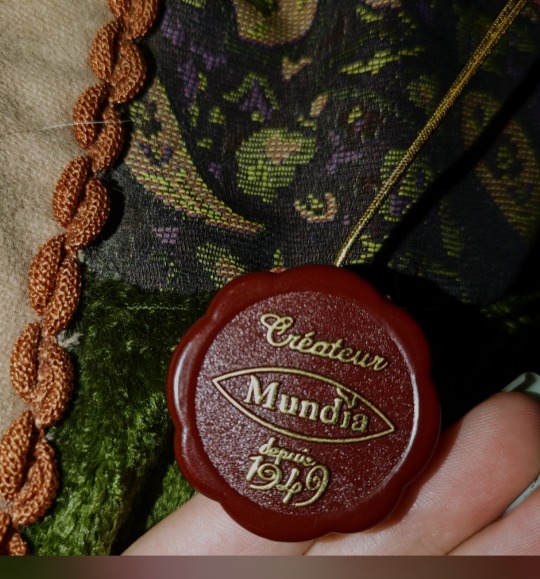

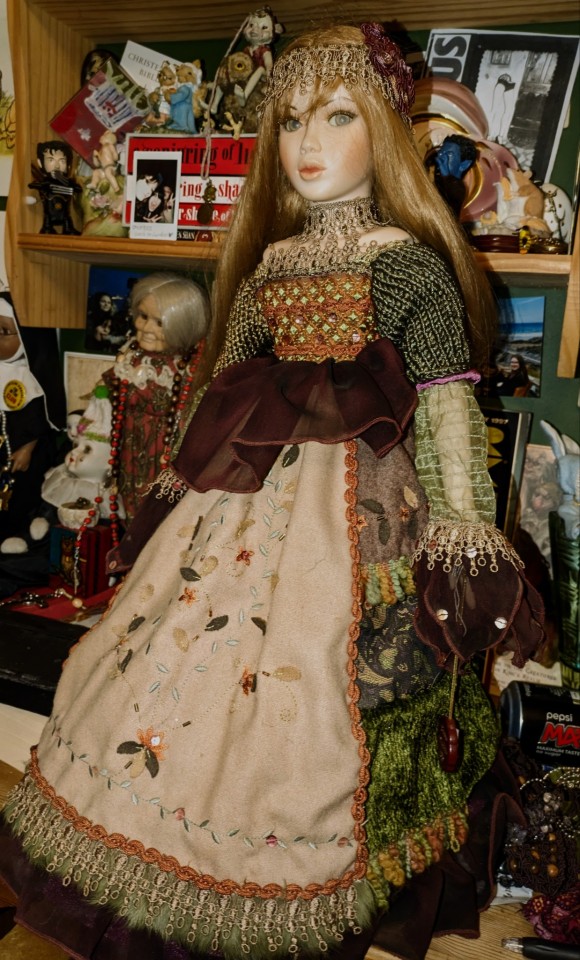
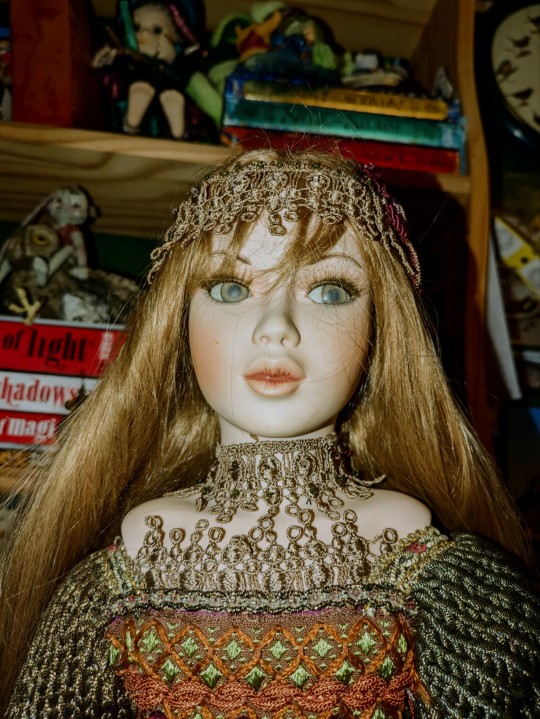
Eeek ! Got this doll the other day, she reminds me so much of gelflings and Wendy Froud dolls. She's my first doll of this brand.
Her name's Oenone for the nymph wife of Paris. She appears in Natalie Haynes 'a thousand ships' in one of my favourite quotes 'He loses his wife so he stirs up an army to bring her back to him, costing countless lives and creating countless widows, orphans and slaves. Oenone loses her husband and she raises their son. Which of those is the more heroic act?'.
#doll collector#doll#fae#doll photography#the dark crystal#jim hensen#wendy froud#natalie haynes#a thousand ships#gelfling#the iliad#whimsigoth#whimsical
23 notes
·
View notes
Text

Natalie Haynes, from 'Stone Blind'
2K notes
·
View notes
Text
Okay if you are interested in classics I cannot recommend enough the podcast Natalie Haynes stands up for the classics. It's free on Spotify and you can probably find it on YouTube too. It's so good she is so funny while also covering everything I love her sm
#classics#natalie haynes#stone blind#a thousand ships#ancient greek#ancient rome#ancient greek myths
46 notes
·
View notes
Text

My inspiration was from Natalie Haynes’ books. I haven't read Stone Blind but I loved the story of Medusa in Pandora's Jar: women in greek myths.
Medusa was one of the three Gorgons, daughters of the sea gods Phorcys and Ceto, and sisters of the Graeae, Echidna, and Ladon. All of Medusa's siblings were monsters by birth, even though she was not, she was a beautiful woman, and human. She was also desired by many men, even Poseidon was caught in "her spell".
She was in the temple of Athena, when something bad happened. Some say it was a love affair, others say it was rape. Well, just as it was since ancient greek and until now, artists have different interpretations, that also raise a lot of questions.
After learning what happened, Athena decides to punish Medusa, independently. Not Poseidon, even though he's at fault. Only Medusa. What she did was to turn Medusa into a more ugly creature than the gorgons. She was "depicted with bronze hands and wings of gold. Poets claimed that she had a great boar-like tusk and tongue lolling between her fanged teeth. Writhing snakes were entwining her head in place of hair. Her face was so hideous and her gaze so piercing that the mere sight of her was sufficient to turn a human to stone."
Now the question is: what Athena did to her was a curse or a salvation? A curse because she was turned into a monster and shunned by everyone except her sisters, isolated, alone. Or salvation because she would no longer suffer in the hands of men. But, in the end, it didn't matter really. She was killed by Perseus, even if she was a great 'monster'.
In this collage you can see three famous sculptures of Perseus killing Medusa. But in the center is the sculpture of Medusa holding Perseus' head, by Luciano Garbati. And this statue has become an important symbol of feminism rage.
#medusa#perseus#greek mythology#mythology#Greek#Ancient Greek#Athena#villain#heroe#monster#collage#Natalie Haynes
25 notes
·
View notes
Text
Caribe's Historical Fiction TBR - Part 2
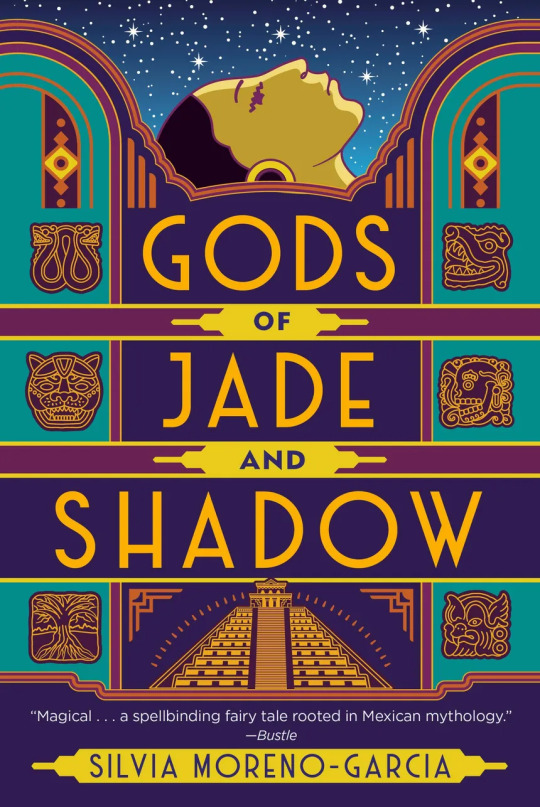
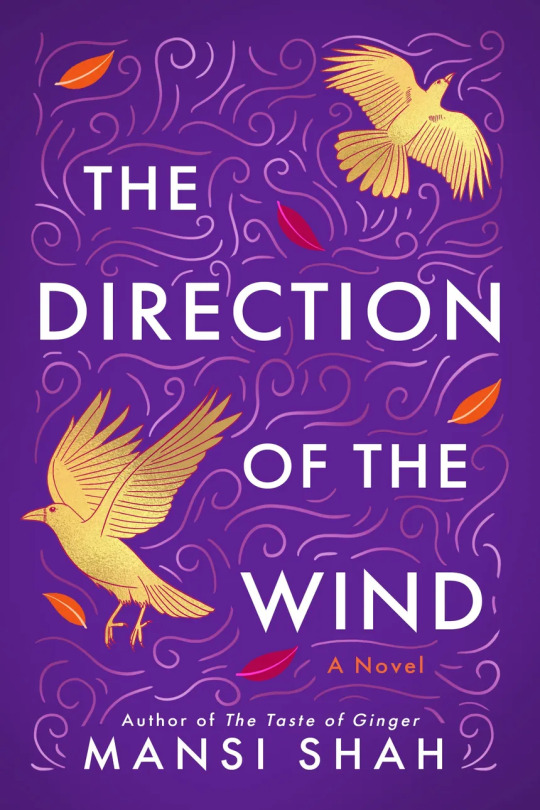




#stone blind#natalie haynes#spellbreaker#charlie n holmberg#babel an arcane history#r f kuang#gods of jade and shadow#silvia moreno garcia#the direction of the wind#mansi shah#between shades of gray#ruta sepetys#book tumblr#books#bookblr#booklr#tbr list#tbr jar#historical fiction
9 notes
·
View notes
Text
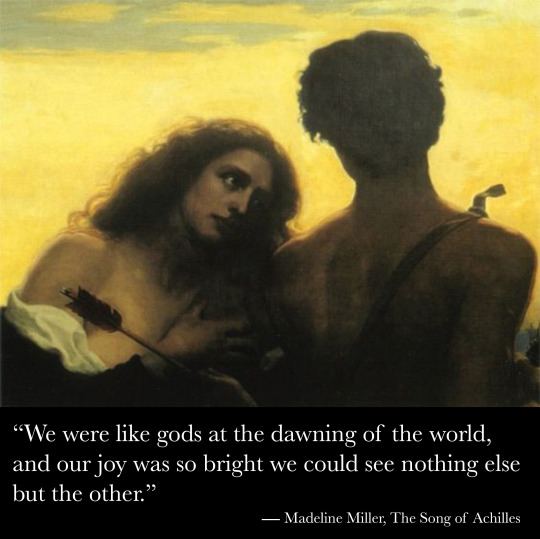
“We were like gods at the dawning of the world, & our joy was so bright we could see nothing else but the other.”
― Madeline Miller, The Song of Achilles
Painting: "Monseigneur Love" by Thomas Cooper Gotch
#classical literature#classics#quotes#albert camus#franz kafka#poetry#sylvia plath#classical quotes#literature#booklr#madeline miller#the song of achilles#circe#natalie haynes#a thousand ships#stone blind#booklover#bookblr#books#books & libraries#book quotes#reading#books and reading#bookworm#lit#literary quotes#classic literature#english literature#virginia woolf#female writers
65 notes
·
View notes
Text
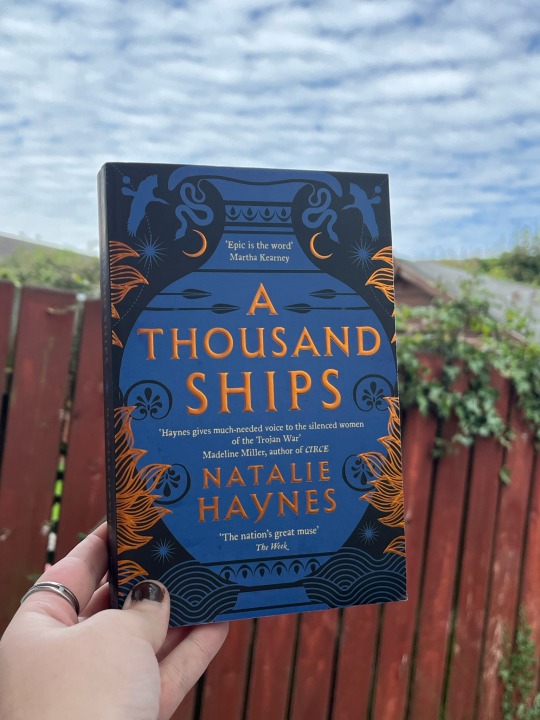
#booklover#booklr#books#booksbooksbooks#books and reading#book lover#current read#a thousand ships#natalie haynes
20 notes
·
View notes
Text

Natalie Haynes, A Thousand Ships
#iphi.post#bookblr#words words words#booklr#natalie haynes#a thousand ships#the iliad#greek mythology#kassandra of troy
8 notes
·
View notes